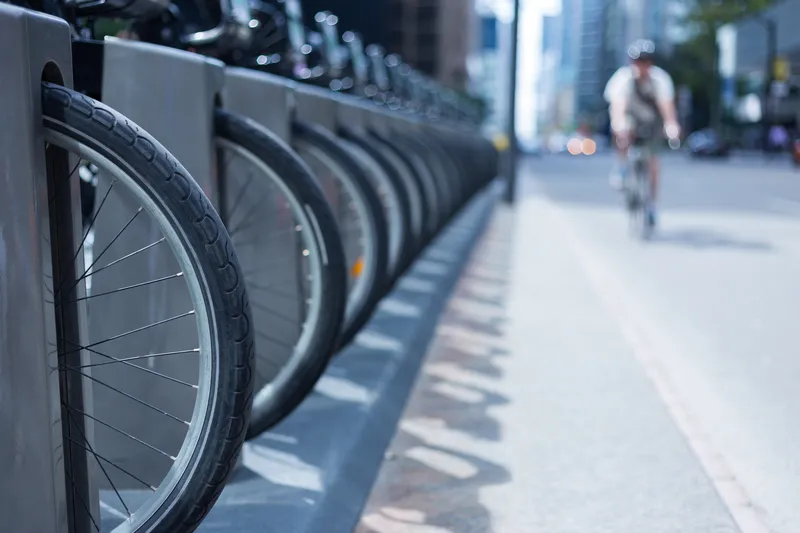The UK’s Transport Research Laboratory (TRL) has been commissioned by the Royal Oman Police (ROP) to undertake a study covering all aspects of road safety within the Sultanate of Oman. TRL’s team of experts will conduct a high level multi-sector assessment of existing road safety activity in the Sultanate. The review will evaluate the Sultanate’s road safety performance, comparing existing activities against best practice across twelve different disciplines including road safety management, safety engineeri
December 4, 2012
Read time: 3 mins
The UK’s Transport Research Laboratory (491 TRL) has been commissioned by the Royal Oman Police (ROP) to undertake a study covering all aspects of road safety within the Sultanate of Oman. TRL’s team of experts will conduct a high level multi-sector assessment of existing road safety activity in the Sultanate. The review will evaluate the Sultanate’s road safety performance, comparing existing activities against best practice across twelve different disciplines including road safety management, safety engineering, legislation and enforcement, education and awareness and post-crash response.
Following the multi-disciplinary review, TRL will develop an action plan that provides practical, realistic solutions aimed at building the Sultanate’s capacity to improve the road safety situation. The action plan will be designed in accordance with the principles of the Safe System, using short to medium-term recommendations that bring about appropriate incremental enhancements in performance.
This study complements an existing project in Oman, where TRL is designing a comprehensive crash database and installing its unique iMAAP network based crash analysis system, working on behalf of the Research Council and in collaboration with ROP.
TRL’s safety director, Tracy Savill says: “We are delighted to be cementing our relationship with the Royal Oman Police and other stakeholders across the Sultanate, assisting in bringing about an enhanced shared responsibility to tackling the road safety problems of Oman.
“We hope that the project will result in the implementation of a series of evidence based recommendations that will stabilise and reduce the high number of road deaths in the country.”
Lieutenant Colonel Amour Sultan Al Touqi of the Royal Oman Police public relations department says: “ROP has been honoured to collaborate with TRL in order to carry out a comprehensive assessment of the current status of traffic safety in the Sultanate in the hope to come up with suitable recommendations and implement them on the ground”.
Safe System is a road transport system that is designed to compensate for human error by helping to ensure that road users are not subject to crash forces that result in fatal or serious injuries.
The Safe System refers to the roles and responsibilities that all system users (e.g. drivers) and designers (e.g. policy makers) play and has been developed around three cornerstones: ‘Safe Roads’, ‘Safe Speeds’ and ‘Safe Vehicles’. A fourth cornerstone, Road Users has recently been added to this to recognise the importance of designing competent and compliant road users.
The Safe System is supported by effective management of road safety at the highest level to improve performance and to ensure that initiatives are focussed on achieving results. Finally, the Safe System must be supported by an effective mechanism for post-crash response that minimises the severity of the outcome from injuries received and facilitates fast and comprehensive rehabilitation for road crash victims.
The Global Plan for the Decade of Action for Road Safety 2011-2020 recommends that every country works towards the implementation of a Safe System.
Following the multi-disciplinary review, TRL will develop an action plan that provides practical, realistic solutions aimed at building the Sultanate’s capacity to improve the road safety situation. The action plan will be designed in accordance with the principles of the Safe System, using short to medium-term recommendations that bring about appropriate incremental enhancements in performance.
This study complements an existing project in Oman, where TRL is designing a comprehensive crash database and installing its unique iMAAP network based crash analysis system, working on behalf of the Research Council and in collaboration with ROP.
TRL’s safety director, Tracy Savill says: “We are delighted to be cementing our relationship with the Royal Oman Police and other stakeholders across the Sultanate, assisting in bringing about an enhanced shared responsibility to tackling the road safety problems of Oman.
“We hope that the project will result in the implementation of a series of evidence based recommendations that will stabilise and reduce the high number of road deaths in the country.”
Lieutenant Colonel Amour Sultan Al Touqi of the Royal Oman Police public relations department says: “ROP has been honoured to collaborate with TRL in order to carry out a comprehensive assessment of the current status of traffic safety in the Sultanate in the hope to come up with suitable recommendations and implement them on the ground”.
Safe System is a road transport system that is designed to compensate for human error by helping to ensure that road users are not subject to crash forces that result in fatal or serious injuries.
The Safe System refers to the roles and responsibilities that all system users (e.g. drivers) and designers (e.g. policy makers) play and has been developed around three cornerstones: ‘Safe Roads’, ‘Safe Speeds’ and ‘Safe Vehicles’. A fourth cornerstone, Road Users has recently been added to this to recognise the importance of designing competent and compliant road users.
The Safe System is supported by effective management of road safety at the highest level to improve performance and to ensure that initiatives are focussed on achieving results. Finally, the Safe System must be supported by an effective mechanism for post-crash response that minimises the severity of the outcome from injuries received and facilitates fast and comprehensive rehabilitation for road crash victims.
The Global Plan for the Decade of Action for Road Safety 2011-2020 recommends that every country works towards the implementation of a Safe System.








